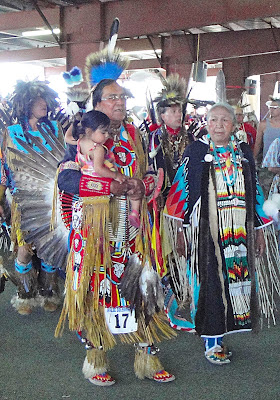Do you, or anyone you know have diabetes? The statistics are astounding: 8.3% of the American population has diabetes - that's 25.8 million people! And many of these are children.
What is even more astounding is that in most cases, it is due to diet. Diet apparently is one of the strongest factors in developing diabetes.
Here, in his own words, is Chuck Malloy's story of how he found out he has diabetes and how he is doing today:
There is good reason why diabetes often is referred to as “the silent killer.”
In its early form, especially, diabetes is not something that people from the outside can see or touch. For me, I didn’t detect diabetes until years after I had it.
Then on one cold and windy March day in 2000, it hit me square in the eyeballs – literally. I was playing in the “Irish Open” golf event at Plantation Country Club near Boise when, suddenly, I lost my eyesight. During the last few holes, the fairways were a blur and I couldn’t even see the putting greens.
What was happening? Was I having a stroke? Heck, I didn’t know. I was feeling fine and I was in good humor as I asked my partners to point me in the direction of the green and tell me the distance. Ironically, I hit some of my best shots in my state of blindness. Our team finished third, and all was well.
Except for one thing. I was as blind as a cave of bats.
My wife, Vicki, and I went from the golf course to the emergency room. It was determined that I was not having a stroke, but that I should at least see an eye doctor the next day. The doctor suspected I had diabetes and that diagnosis was confirmed by a physician.
Slow down here … I was told that I had diabetes … which to some people is like being told they have cancer. There are a lot of emotions that go with a diagnosis like that – anxiety, depression and denial being among those. I was no exception, although this diagnosis was a mere warm-up to complications that were to come.
A year later, I lost a toe. Two years later, I lost my eyesight, essentially ending my 30-year newspaper career and job as an editorial writer with the Statesman. A year after that, I had five-way bypass surgery after a cardiologist looked me in the eye and told me I was a candidate for dropping dead at any time.
And I thought getting news about diabetes was a shock …
Putting everything together, you’d think I would be dead by now – or maybe missing a foot or leg as a result of diabetes. The truth is, I am feeling better than I have in decades. My heart is strong, surgeries have fixed my eyes and the missing toe doesn’t hurt my golf game. Moreover, I am doing work with an organization called “Diabetes Support Network,” so much of my “professional” life is devoted to promoting awareness about the disease.
Baseball historians will recall that day in 1939 when the great Lou Gehrig declared himself as the luckiest man on the face of this earth. Today, I feel that title should go to me.
One regret I have is not reacting to the symptoms back in the 1990s. All the signs of “pre-diabetes” were there. I lost about 40 pounds while eating anything and everything I wanted. I didn’t think anything about it. I also didn’t think anything about the gallons of Gatorade I was consuming, or the fact I felt coldness and numbness in my feet.
The only thing I knew was that weight was melting away and looking good. Looks can be deceiving, and in this case they were. The “silent killer” was working its way through my body, and I had no clue.
Today, I can speak with some authority about the cruelty that diabetes can inflict. I also can speak with some authority about the importance of not giving up in the face of adversity. When I talk about diabetes, I think about words spoken by Jim Valvano, one of the greatest coaches and motivators in the history of college basketball. What Jimmy V. said abut cancer applies to diabetes and I live by these words.
Diabetes has taken some things from me, and it might take more away from me in the future. But there are three things that diabetes cannot take, and never will take. It cannot take my heart; it cannot take my mind; and it cannot take my soul.
**********************************************
After Chuck's health stabilized, he helped found the Diabetes Support Network. This network was established as a community outreach resource to provide people who are struggling with diabetes to become better informed about how to live with this disease and just exactly where they can find resources for the supplies and information they need. This site if full of useful information. Another very informational site is the American Diabetes Association's national website. Since this is an ailment that can be much improved and in many cases completely controlled through diet, many easy and delicious diabetic-friendly recipes can be found here. Chuck's mission is to help others who have just discovered they have diabetes, have been diagnosed and are not sure what to do next, or were diagnosed some time ago but would like some ongoing support. Chuck can be reached at chuck@diabetessupportnetwork.org





